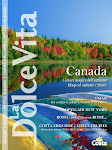Summary
There is a low threat from terrorism in Croatia, but you should be aware of the global risk of indiscriminate attacks, which could be in places frequented by expatriates and foreign travellers.
Carry your passport at all times. You must be able to show some form of identification if required.
Unexploded land mines are still a danger in some more isolated areas. Highly populated areas and major routes are now clear of mines and are safe to visit. However, isolated areas in the mountains and countryside have not all been cleared. You should therefore be careful not to stray from roads and paved areas without an experienced guide.
We recommend that you obtain comprehensive travel and medical insurance before travelling. You should check any exclusions, and that your policy covers you for the activities you want to undertake.
Local Travel
If you are planning to travel outside the normal tourist resorts you should be aware that there are areas affected by the war, which ended in 1995, where unexploded mines remain. These areas include Eastern Slavonia, Brodsko-Posavska County, Karlovac County, areas around Zadar County and in more remote areas of the Plitvice Lakes National Park. For more specific information about mine-affected areas please visit the Croatian Mine Action Center's web site at: http://www.hcr.hr/en/minskaSituacija.asp.
Road Travel
If travelling by car you should ensure, before setting out, that your green card covers Croatia. Insurance can normally be purchased at the main border crossings, however some of the smaller crossings may not have this facility or have limited hours when the service is available. If you are driving to or through Bosnia and Herzegovina, including the 20km strip of coastline at Neum on the Dalmatian coastal highway, you should ensure that your Green Card includes cover for Bosnia and Herzegovina. If this is not the case, temporary third-party insurance can be purchased at the main border posts, or in Split and other large Croatian cities. Insurance cannot be obtained at the Neum border.
Road conditions in and around Zagreb and the larger towns are of a generally good standard. However, you should take care when overtaking and use caution around other road users who may unexpectedly overtake repeatedly in slower traffic. Minor roads are usually unlit at night.
Croatia has laws stating that it is illegal:
to drive with more than 0.5% of alcohol in the system (but if in any kind of offence zero tolerance applies);
to drive without dipped headlights on during daylight saving period (last weekend in October until last weekend in March); and
to use a mobile phone whilst driving.
It is obligatory to carry a fluorescent vest in your car whilst driving in Croatia. You must keep the vest in the car and not in the boot. You must wear the vest whilst attending to a breakdown, e.g. changing a tyre. All passengers must wear Seatbelts and special seats are required for infants. Children under the age of 12 may not sit in the front seat.
There have been a number of reported incidents of gangs robbing car occupants after either indicating that they are in trouble and require assistance, or pulling alongside a car and indicating that there seems to be something wrong and they should pull over. You should therefore be extremely cautious should something similar to the above actions occur.
Rail Travel
Special care should be taken to guard valuables, especially at night.
Sea Travel
Croatia has also adopted a law expressing zero tolerance on alcohol consumption by those in charge of yachts and other boats. If you intend to take charge of a boat in Croatia you should not consume alcohol. The penalties for being caught drunk in charge of a boat are likely to be heavy.
There have been a number of cases of yacht/boat skippers being arrested and taken to court for entering a non-designated entry port when arriving in Croatia, without informing the authorities, which has resulted in the skippers being heavily fined. If you are considering sailing to Croatia you should be aware of the rules on entry to Croatia.
Local laws and customs
Carry your passport at all times, because it is the only officially recognised form of identification. Keep a photocopy of the biographical details page (the page where your photograph is) in a safe location, including details of your next of kin.
A violation of local laws may result in a jail sentence, served in a local prison. Drugs related offences are punished with fines and jail sentences.
Passport Validity
Since February 2008 you require three months’ remaining validity on your passport to enter Croatia.
Insurance
Health care facilities, doctors and hospitals may expect up-front cash payment for medical services.
Money
All major credit/debit cards are accepted in most banks and hotels. Sterling, US Dollars and Euros are easily exchanged for local currency. There are plenty of cashpoints in Zagreb.
There have been reports of an increase in the number of forged Croatian Kuna banknotes being discovered, especially 200 and 500 notes. You are asked to take care when purchasing Kuna; you should only do this at reliable outlets, such as banks and cashpoints.














No comments:
Post a Comment